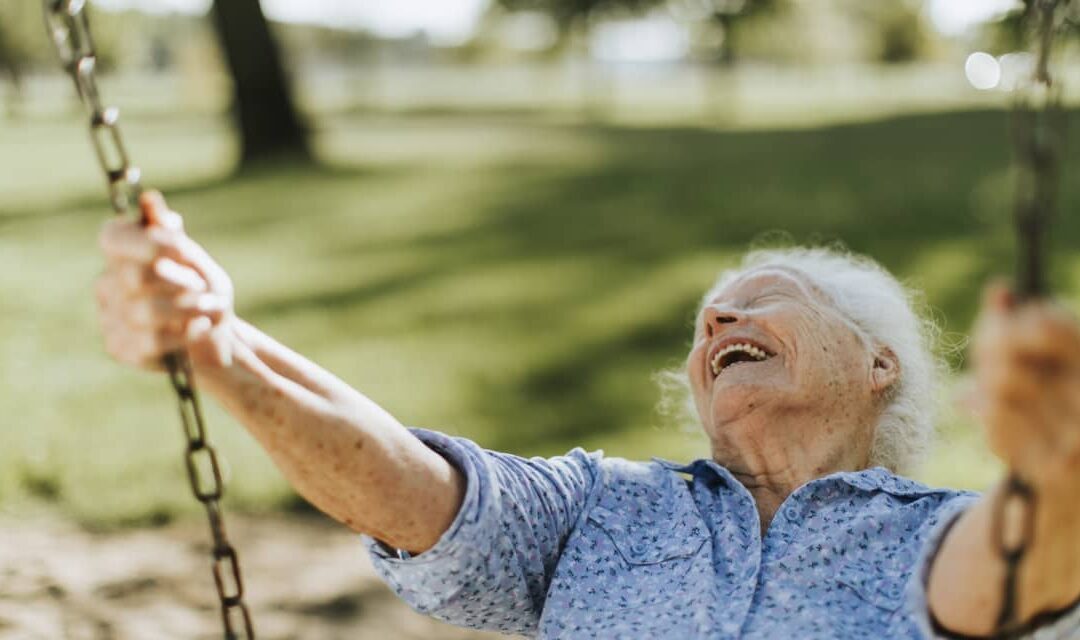Some days, when my life is too rushed and the world seems bleak, I think of that quote from playwright George Bernard Shaw: “We don’t stop playing because we grow old. We get old because we stop playing.” Then I stop and ask myself, “What have I done for fun this week?”
That question is far from silly: my very health is at stake. Take it from psychiatrist and researcher Dr. Stuart Brown, who has been studying the science of play for six decades. “Play is hard-wired in humans and many other animals,” he said. “Play persists as part of our nature, from birth to death.”
In recent decades, Brown and other scientists have confirmed, with solid evidence, what Shaw knew instinctively: humans have a biological need for moments of joyful recreation, not only in childhood but at every age.
Brown is the founder and president of the nonprofit National Institute For Play (NIFP), which has gathered thousands of studies, books, and articles about the importance of play in our lives. He defines “play” as more of a state of mind than a specific activity.
Those moments when your mind is so fully engaged that you barely notice time passing? That’s the “play” state of mind. Of course, play is individual. It’s something you want to do, voluntarily and repeatedly, without expecting any external reward.
For example, golf brings bliss to millions, but it’s torture on grass for me. I prefer visiting museums, digging in the garden, or dancing with friends — all activities others might not find the least joyful.
Also see: Don’t underestimate the power of a simple ‘hello’
Making play a priority
Brown has spent six decades researching the physical and emotional problems that arise when people don’t make play a priority in their lives. Early on, his research included compiling the “play histories” of murderers, whose childhoods were usually devoid of joyful play.
Yet he warns that even playful children can grow up to be dull and joyless adults. “There is a smoldering depression that occurs if you haven’t had enough play,” Brown reported. “The capacity for play and joyfulness is often lost or suppressed in adulthood. But biologically, the need for play is similar and parallel to sleep.”
He said we all know that sleep deprivation is harmful, but few people realize the harm of play deprivation. “If you don’t have the experience of joyfulness, you become less optimistic, less gregarious, less empathetic, and stuck in rigid ways of thinking.”
Brown told me. “There are real consequences to play deficit.” The good news is that the cure is easy and fun. There’s no need to do anything you don’t enjoy: play is best when it’s an activity you love, especially things you enjoyed in your younger days.
Brown says researchers have shown that even people with dementia significantly improve health measures after activities they enjoy, such as singing along to music of their younger years. “We can all find something in our lives that brings us joy,” he said.
Now age 90, Brown enjoys riding his bike to a local beach, where he loves watching dogs romping and playing in the waves. “Their joy is contagious,” he says. For others, he says play might be as simple as calling an old friend to say “I miss you. Let’s talk.”
Brown recalls one patient who, after a hard life growing up in foster homes, had lost her ability to play. “She loved jazz music, so I told her to get a baton and direct the music, like a conductor. She began to get joyfulness from playing along with the music.” Eventually, the woman took steps to connect with others who loved jazz music, bringing even more play and moments of joy into her life.
Don’t miss: Why traveling solo on a group trip can be the experience of a lifetime
Play and our health
The benefits of play are both psychological and physical, especially with a specific type of play: the arts. This is true not only for children but also for adults. Susan Magsamen, executive director of the International Arts + Mind Lab at the Pederson Brain Science Lab at Johns Hopkins, collected much of this research in her book “Your Brain on Art: How the Arts Transform Us” (co-author Ivy Ross, 2023).
Magsamen told me in an email that “art and play are like two sides of the same coin. Though it gets buried in adulthood, the urge to play exists in all of us.” She says the arts, such as painting, drawing, dancing and singing, are “tremendous tools to change our brains, bodies, behavior — and the world.”
Her book explains how, decades ago, scientists believed the adult brain had little capacity for change. Neuroplasticity research shows that the human brain can rewire and change significantly at any age. The key, Magsamen says, is to enliven the senses with art, nature and play. Participation in the arts triggers the release of neurochemicals, including feel-good endorphins.
Studies detailed in her book show that just 20 minutes of coloring reduces anxiety and lowers heart rates. Dancing improves mood by releasing serotonin. Those who participate in the arts, including theater or museum visits, have a 31% lower risk of dying early when compared to those who don’t, and a lower risk of developing dementia.
“When you see a film, when you view art, when you dance, when you listen to music, there is a neurochemical exchange,” says Magsamen. “The arts help you navigate the peaks and valleys of life.”
Karla Mans Giroux, co-founder of Health Navigators, a cancer wellness community, agrees. She always includes the science of play in her workshops for cancer patients and survivors. Those lessons are based on the 10 healing practices common in exceptional cases of long-term cancer survivors, as researched by Dr. Kelly Turner at the University of California at Berkeley and detailed in Turner’s bestsellers “Radical Remission” and “Radical Hope.”
“One of the most important of the 10 factors is ‘increasing positive emotions,’” said Giroux, “which can bring short-term and long-term benefits to the immune system.” The success of her workshops drew the attention of Harvard University researchers, who have been documenting health outcomes before, during and after these workshops, with encouraging results.
Plus: This is one of the best exercises you can do for your health if you’re over 50
Recruit a ‘joy squad’
Recent studies show that our immune system plays a vital role in the body’s response to cancer and many other illnesses, she said. “Dr. Turner’s research showed that positive emotions are like rocket fuel for the immune system. But if you feel stress or fear, it’s the opposite. Rest and relaxation help us get out of fight or flight mode and into rest and repair mode.”
Giroux, who describes herself as a “cancer thriver living with metastatic cancer,” tells her workshops that play is like a muscle they need to use daily. She urges cancer patients to recruit a “Joy Squad,” those friends and family whose job is to increase joy in the patient’s life.
“They can do this in whatever way works for you,” she says.” Maybe that’s telling you jokes or sending funny videos. We just want you to stop the hamster wheel and feel joyful and happy at least some of the day.”
Giroux is also an outlier, whose own cancer has twice gone into remission. But she remembers the early days when she had to endure a series of painful chemo injections and learned firsthand how levity could improve her experience. She asked her husband to come with her and tell her a corny joke to get her laughing before the injection. “That works!” she said. “It makes the shot less painful.”
Related: The surprising benefits of playing with your grandkids
In her workshops, Giroux guides participants in visualizing the smell and taste of a lemon so they can see how quickly their bodies react to their thoughts. “The mouth puckers up and waters just from thinking about a lemon,” she said. “That shows us how the body believes what the mind tells it. The mind is powerful, so let’s harness its powers for healing.”
Giroux enjoys helping patients figure out how to bring more playfulness and joy to their lives, even when facing health and mobility issues. For her mother, who became paralyzed from the waist down, happiness came from working on complicated jigsaw puzzles. Others might prefer playing an instrument, solving a word puzzle, or curling up with a good book.
And Giroux practices what she preaches. She often dances in her kitchen or listens to audiobooks while painting by numbers. “It is super relaxing,” she says. “I am a playful, optimistic person.” In another exercise Giroux leads her workshop participants in, she has them write down 20 things they are grateful for or 20 happy memories.
“Often this helps them remember activities they stopped doing at some point, as adults,” she said. “When adulting, we forget how to play. This exercise reminds them of the things they can employ to increase their joy and improve their quality of life.”
Now that I’m armed with this research, I say Yes! to more things that bring me joy. And I’m hoping to find the parallel to George Bernard Shaw’s quote: If I add more play, belly laughs, and joy to my life, will I reverse the clock and feel younger? Or will I not care so much when the world feels bleak?
Either way, I’m game.
Author and journalist JoBeth McDaniel lives with three wild and crazy rescue cats in Southern California.
This article is reprinted by permission from NextAvenue.org, ©2023 Twin Cities Public Television, Inc. All rights reserved.
More from Next Avenue:








